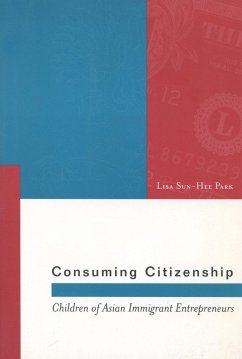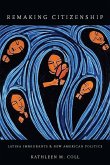Consuming Citizenship investigates how Korean American and Chinese American children of entrepreneurial immigrants demonstrate their social citizenship as Americans through conspicuous consumption. The American immigrant entrepreneur has played a central role in projecting the American ideology of meritocracy and equality. The children of these immigrants are seen as evidence of an open society. While it appears that these children have readily adapted to American culture, questions remain as to why second-generation Asian Americans feel compelled to convince others of their legitimacy and the way they go about asserting their citizenship status. Extending our understanding of such children beyond the traditional emphasis on assimilation, the author argues that their consumptive behavior is a significant expression of their paradoxical position as citizens who straddle the boundaries of social inclusion and exclusion.
Hinweis: Dieser Artikel kann nur an eine deutsche Lieferadresse ausgeliefert werden.
Hinweis: Dieser Artikel kann nur an eine deutsche Lieferadresse ausgeliefert werden.








